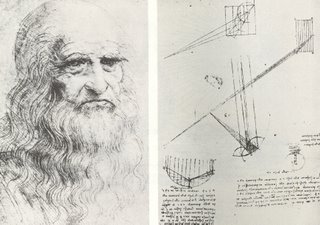
So, I went to see the Da Vinci Code this weekend with some friends and the verdict is...well...it was alright as far as entertainment value. I believe that it did firmly prove that having Tom Hanks in your movie does not guarantee success. Even the great Tom Hanks needs lines that have sentences longer than 5 words. Some of the lines felt like they belonged in a Star Wars movie(newer ones). As far as the theology goes, I'm still not sure how some of the lines were pulled off with a straight face....but whatever. I had the opportunity to share the gospel this week in Panera Bread company with guy and the conversation started because of the book. I can't complain when a book (even a messed-up one) provides an opportunity for a spiritual conversation.
But, here's a question that does seem to keep coming up in one way or another and I'd love to hear what others have to say. I've been studying a document put out by some highly respected pastors/professors who want to draw a line on what the gospel is truly about. You can check out this document on www.togetherforthegospel.org and go to the 'about' section. I haven't had too many issues with it but I did have some questions on the very first one. Here is article 1:
Article I
We affirm that the sole authority for the Church is the Bible, verbally inspired, inerrant, infallible, and totally sufficient and trustworthy.
We deny that the Bible is a mere witness to the divine revelation, or that any portion of Scripture is marked by error or the effects of human sinfulness.
So, if we take this Scripture seriously, then Jesus has been given ALL authority over heaven and earth which include the church. Does he exercise this authority through Scripture? Absolutely, but it seems like an important nuance to me that isn't mentioned. Lest anyone think, I just took one verse to prove my point, one should also see Romans 13:1, John 19:11, as well as Philippians 2:9-11 to name a few. It seems like Sciptures makes the point very clear that all authority has been given to Jesus. (highly ironic, I think) Even John in the first chapter talks about the Word being there in the beginning and the Word was made flesh. Therefore the authority of Scripture should possibly be reworded as God's authority exercised through His inspired Word.
The only other issue which makes me just a little nervous is the denial part that no Scripture is marked by human error. I think I know what they are trying to say(and would agree with it) but people could see some insuations that maybe they shouldn't. For example, it doesn't mean that people's sinfulness could not hinder a translation of a proper reading of the text. Also, what do you do with simple things like in I Samuel where numbers are simply missing because we don't have them anymore. I know these are small issues but are still worth mentioning if we are talking about a total agreement with every statement in the declaration.
AGAIN, let me say that I deeply respect the guys that put this document together and I know I'm being a bit nitpicky. BUT, any time you draw a line in the sand, it's a pretty big deal- especially when you are talking about the Gospel. I'm open to pushback and debate. Bring it on!!! :)




